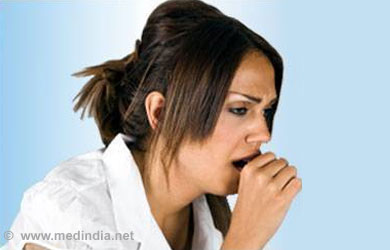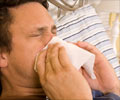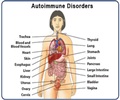Causes and Symptoms of Churg-Strauss Syndrome
Causes of Churg-Strauss Syndrome
The cause of Churg-Strauss syndrome is not clearly elucidated although a combination of unidentified factors is said to be behind it.
Individuals with Churg-Strauss syndrome have an overactive immune system which not only attacks invading foreign organisms but also targets healthy tissues leading to extensive inflammation. It is still not known why such a response occurs.
There are people who have developed Churg-Strauss syndrome either after using an asthma medication called Montelukast or after they switched from a low-dose oral steroid to inhaled steroid drugs. However, a clear link between medications and Churg-Strauss syndrome has not been established.

Symptoms of Churg-Strauss Syndrome
Churg-Strauss syndrome symptoms are highly varied. It may be mild in some while it may be severe or life-threatening in others.
Churg-Strauss syndrome occurs in three phases. These phases may not occur in order, one after another, in everybody especially if the disease is treated at a very early stage.
The stages of Churg-Strauss syndrome and the symptoms involved in these stages are listed below-
Allergic stage
This first stage of Churg-Strauss syndrome is marked by symptoms such as the following-
- Asthma is the first and the most important sign of Churg-Strauss syndrome and it develops about 3-9 years before other symptoms develop

- Hay fever (allergic rhinitis) affects the nasal mucous lining and causes runny nose, itching and sneezing
- Sinusitis causes facial pain and promotes nasal polyps as a result of chronic inflammation.
Eosinophilic stage
An eosinophil is an infection–fighting WBC that helps your immune system fight certain infections. In those with Churg-Strauss syndrome abnormally high numbers of eosinophils (hypereosinophilia) are found in blood or tissues and this can be deleterious.
Signs and symptoms of this phase depends on the body part being affected. Lungs and the digestive tract are most often involved.
Signs and symptoms of this phase include-
- Fever
- Asthma
- Weight loss
- Fatigue
- Cough

- Abdominal pain
- Gastrointestinal bleeding
- Night sweats
This phase of Churg-Strauss syndrome may last for a long time and may even recur. Some patients may experience some symptoms of the third phase alongside the second stage
Stage of vasculitis
The third stage of Churg-Strauss syndrome is marked by severe blood vessel inflammation (vasculitis) which reduces blood flow to vital organs and tissues such as the skin, muscles, bones, digestive tract heart, and peripheral nervous system. Sometimes even the kidneys are not spared.
It is likely that a person experiences uneasiness, weakness, fatigue, unintended weight loss and swollen lymph nodes.
Depending on the organs affected, a person is likely to experience the following too-
- Skin sores / rashes
- Joint aches/ swelling
- Severe pain, numbness and tingling in the hands/ feet (peripheral neuropathy)
- Diarrhea, nausea and vomiting
- Severe abdominal pain

- Shortness of breath either due to asthma or congestive heart failure
- Coughing up blood (hemoptysis)
- Blood in your urine (hematuria)
- Irregular heartbeat / chest pain
In absence of treatment, the disease may be fatal. Complications of the disease include peripheral nerve damage, skin scarring, heart disease and kidney damage.








